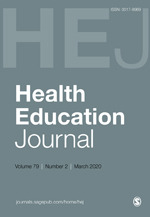But is it comprehensive? Unpacking the ‘comprehensive’ in comprehensive sexuality education
In their recent article, Esther Miedema, Marielle Le Mat, and Frances Hague (2020) dive into the notion of “comprehensive” in comprehensive sexuality education. To gain greater clarity on what CSE is seen to be and entails, and how this form of sexuality education compares with other approaches, a review of existing programmatic and scholarly literature was conducted. This research builds on the Share-Net International small grant awarded to the University of Amsterdam in 2016. Find more about the small grants here.
Abstract
Background:
Comprehensive Sexuality Education (CSE) is increasingly gaining traction within the international community. CSE is regarded as an important means of informing young people about their rights and sexual health, improving public health outcomes, and contributing to sustainable development.
Context and objective:
Considerable variation exists in understandings regarding what makes sexuality education ‘comprehensive’. To gain greater clarity on what CSE is seen to be and entails, and how this form of sexuality education compares with other approaches, a review of existing programmatic and scholarly literature was conducted.
Design:
This literature review analyses a range of CSE guidelines and academic sources engaging with the subject of CSE, and sexuality education more broadly.
Method:
Analysis of stated goals and means of CSE to identify core components of this form of education.
Results:
Four sets of core CSE components are identified, yet the analysis shows that the intended breadth of this type of sexuality education leaves considerable space for interpretation, with key concepts often remaining abstract. Furthermore, addressing the core elements of CSE and achieving its ‘emancipatory’ goals can work to exclude particular perspectives and subjectivities.
Conclusion:
The review draws attention to the politics of knowledge production at play in decisions concerning what is deemed ‘comprehensive’, for whom, when, and where. It concludes that the notion of ‘comprehensive’ is a matter of degree, and that reaching consensus on a set of universal standards regarding what can be deemed as ‘comprehensive’ may neither be possible nor desirable. The analysis will be useful for those interested in more careful engagement with CSE and, specifically, in examining features that, in practice, may run counter to the original goals.
Read the full article here.
